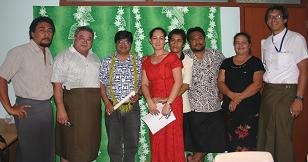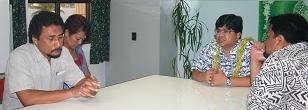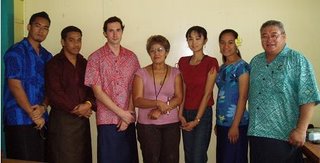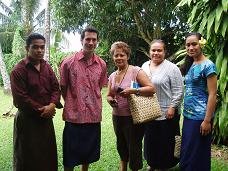Gender for Journalists - A Toolkit by CPU
Trish Williams
Media & Gender Consultant, UK
Traditionally, women and men have been, and in many instances still are, portrayed by the media according to stereotyped expectations and interpretations of their roles in society. In patriarchal countries, particularly in the developing world, this just reinforces the belief that women are not capable of playing a full role in society, in both public arenas and the private space of the home. The twentieth century saw many initiatives by the international community aimed at raising awareness of the inferior position that women have in society and the action that must be taken in order to redress the situation. The Fourth World Conference on women, held in Beijing in 1996, was the most important of these initiatives and set the agenda for women's future empowerment.
As a journalist, for fifteen years I was a senior current affairs producer with the BBC World Service, I was one of the hundreds of media representatives to attend this seminal conference in Beijing. It proved to be a turning point in my own career.
On my return flight to London, I read the recommendations contained in the Platform for Action. I was particularly interested in the section about the role of the media in bringing about change for women. We know that as journalists we play an important part in defining what people think and what their place is in society. I realised that if fully briefed about gender issues and gender sensitive reporting, journalists would be able to present a clearer and more accurate picture of the contribution that both women and men make to the development and prosperity of their societies.
With funding from Britain's Department for International Development (DFID), I developed a 'Media Gender Strategy' for sensitising the print and broadcast media and designed gender training materials and courses. Since then, in my new role as a Media and Gender Consultant, I have conducted gender sensitisation workshops and seminars in Africa, the Caribbean, South and South East Asia and the Middle East.
This 'Gender for Journalists' toolkit is based on those training workshops. It is designed to make you aware of the areas where women are disadvantaged and the role that men can play in bringing about change. I also give guidance on information sources and websites that you can turn to and have attempted to credit the sources I have used. However if I have missed any please accept my apologies.
I would like to thank the Commonwealth Press Union, the Commonwealth Broadcasting Association and the Asia-Pacific Institute for Broadcasting Development for their support.
Note for Samoan Journalists
Please find the toolkit at this link:
http://www.cpu.org.uk/cpu-toolkits/gender_reporting/index.html
For more information Please visit:
http://www.cpu.org.uk/#
Media & Gender Consultant, UK
Traditionally, women and men have been, and in many instances still are, portrayed by the media according to stereotyped expectations and interpretations of their roles in society. In patriarchal countries, particularly in the developing world, this just reinforces the belief that women are not capable of playing a full role in society, in both public arenas and the private space of the home. The twentieth century saw many initiatives by the international community aimed at raising awareness of the inferior position that women have in society and the action that must be taken in order to redress the situation. The Fourth World Conference on women, held in Beijing in 1996, was the most important of these initiatives and set the agenda for women's future empowerment.
As a journalist, for fifteen years I was a senior current affairs producer with the BBC World Service, I was one of the hundreds of media representatives to attend this seminal conference in Beijing. It proved to be a turning point in my own career.
On my return flight to London, I read the recommendations contained in the Platform for Action. I was particularly interested in the section about the role of the media in bringing about change for women. We know that as journalists we play an important part in defining what people think and what their place is in society. I realised that if fully briefed about gender issues and gender sensitive reporting, journalists would be able to present a clearer and more accurate picture of the contribution that both women and men make to the development and prosperity of their societies.
With funding from Britain's Department for International Development (DFID), I developed a 'Media Gender Strategy' for sensitising the print and broadcast media and designed gender training materials and courses. Since then, in my new role as a Media and Gender Consultant, I have conducted gender sensitisation workshops and seminars in Africa, the Caribbean, South and South East Asia and the Middle East.
This 'Gender for Journalists' toolkit is based on those training workshops. It is designed to make you aware of the areas where women are disadvantaged and the role that men can play in bringing about change. I also give guidance on information sources and websites that you can turn to and have attempted to credit the sources I have used. However if I have missed any please accept my apologies.
I would like to thank the Commonwealth Press Union, the Commonwealth Broadcasting Association and the Asia-Pacific Institute for Broadcasting Development for their support.
Note for Samoan Journalists
Please find the toolkit at this link:
http://www.cpu.org.uk/cpu-toolkits/gender_reporting/index.html
For more information Please visit:
http://www.cpu.org.uk/#








